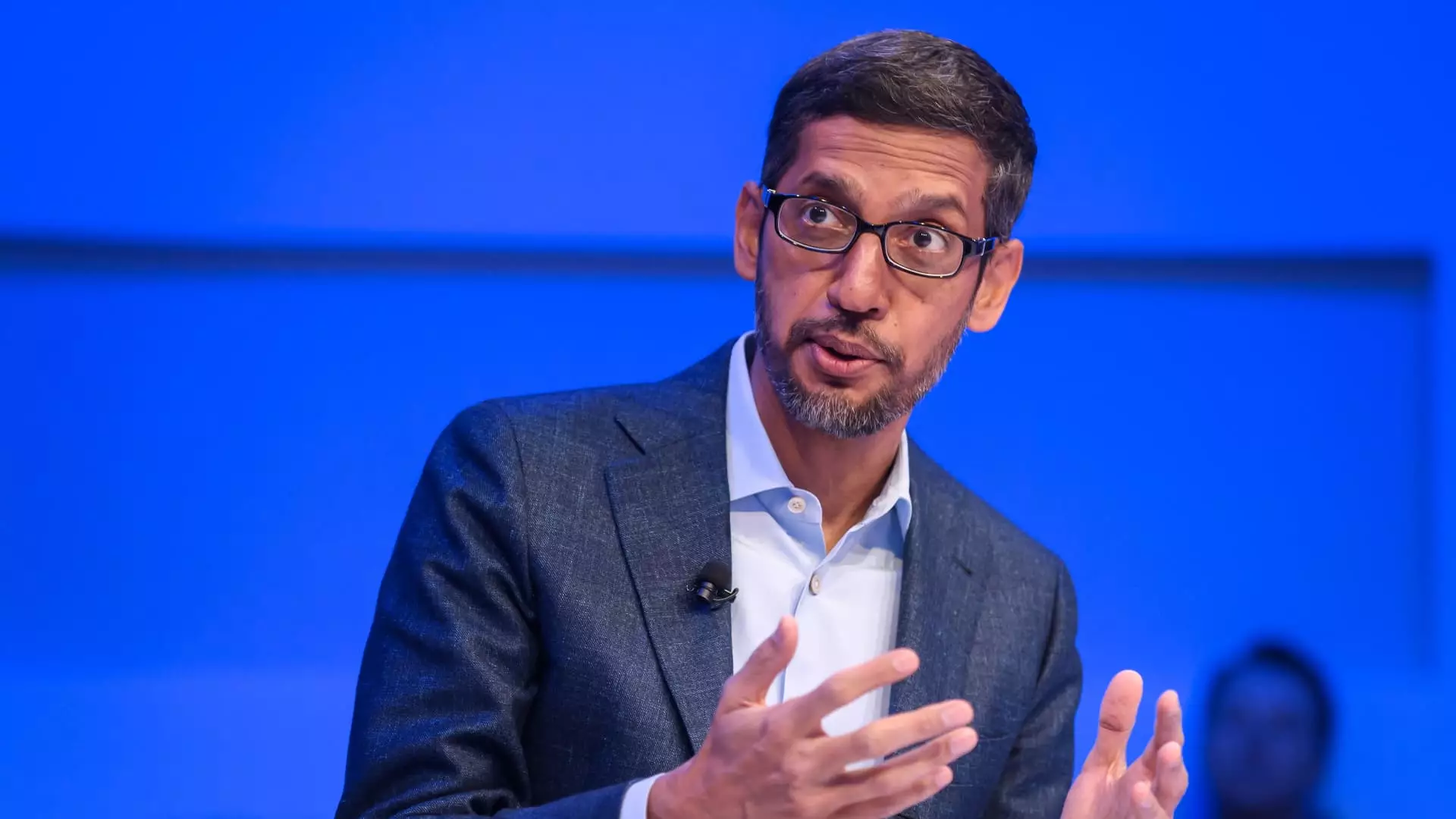In a recent address to Google employees, CEO Sundar Pichai emphasized the critical nature of the upcoming year, 2025, highlighting that “the stakes are high.” This statement encapsulates a shared sentiment within the tech community as companies grapple with intensified competition, evolving regulatory challenges, and a rapidly advancing artificial intelligence landscape. Pichai’s remarks followed an intense year for Google, a period marked by significant pressures that have not only tested the company’s resilience but also prompted a reevaluation of its strategic priorities.
During a strategy session held on December 18, 2024, Pichai gathered company leaders, all adorned in holiday-themed attire, to rally support for innovation and adaptability in the face of growing pressure from rivals. “We need to internalize the urgency of this moment,” Pichai stated, underscoring the necessity for agility and an unwavering focus on leveraging technology to solve pressing user problems. The blend of enthusiasm and anxiety in his words is reflective of Google’s current environment, where the balance between maintaining market dominance and responding to external threats is increasingly precarious.
Confronting Regulatory Challenges
Regulatory scrutiny has reached unprecedented levels for Google, a reality underscored by a recent federal judge’s ruling that the tech behemoth has maintained illegal monopolistic power in the search market. The Justice Department’s insistence on forcing Google to divest its Chrome unit further underscores the legal challenges the company faces, which poses a significant threat to its operational framework. This heightened regulatory attention not only marks a challenging chapter for Google but also signals a broader shift in how tech companies are being governed in an increasingly data-driven world.
As Pichai navigated these external pressures, he acknowledged that the size and success of Google inevitably attract scrutiny. “It’s part of a broader trend where tech is impacting society at scale,” he noted. This sentiment echoes a growing awareness among industry leaders that the consequences of technological advancement must be closely monitored, urging companies like Google to adopt more socially responsible strategies without losing sight of competitive dynamics.
Google’s continued dominance in the search market is juxtaposed with the burgeoning rise of generative AI technologies, which have introduced new, formidable competitors. Following OpenAI’s launch of ChatGPT, which triggered a wave of investor interest and valuation surges, innovative start-ups are rapidly capturing market share. Google recognizes the urgent need to stay ahead in the AI landscape and has invested heavily in developing its AI model, Gemini. Pichai expressed a clear commitment to making “building big, new businesses” a top priority, describing Gemini as a potential game-changer for the company.
Yet, the race to harness AI, while critical, has compelled Google to confront its past delays in execution. Pichai reflected on the company’s historical approach to innovation, emphasizing that being first is not always synonymous with success. “You have to execute well and really be the best in class,” he pointed out, reinforcing the notion that 2025 presents an opportunity for Google to refine its offerings and emerge as a market leader.
The company’s ability to innovate hinges not just on technology but on employee engagement and internal culture. During the strategy meeting, Pichai solicited feedback from employees, showcasing an organizational commitment to inclusivity and collaboration in shaping future strategies. Discussions around the potential of the Gemini app highlighted the importance of team dynamics and user feedback in refining product offerings, with DeepMind co-founder Demis Hassabis sharing insights on the app’s evolution and positioning.
Moreover, Pichai’s reminiscence about Google’s scrappy beginnings serves as a motivational touchstone, reminding current employees of the ingenuity that fueled the company’s early successes. This narrative is critical, as it highlights the importance of creativity and flexibility in navigating challenges, reinforcing a culture that encourages innovation despite financial constraints.
The Road Ahead
In closing, Google’s trajectory as it approaches 2025 is emblematic of the broader challenges facing technology companies today. The intersections of intense competition, regulatory scrutiny, and the rapid pace of technological innovation create an environment that demands resilience and adaptability. As Pichai aptly summarized, the company must remain “relentlessly focused on unlocking” the potential of its technologies while staying attuned to the needs and anxieties of users across the globe.
As Google prepares for the forthcoming year, the emphasis on agility, employee involvement, and a commitment to excellence in product execution will be pivotal. With these elements guiding their strategy, the company stands a fighting chance to not only maintain its dominance but to redefine what it means to lead in the digital age. The challenge ahead is significant, but Google’s legacy of innovation suggests that it is equipped to meet the moment.

